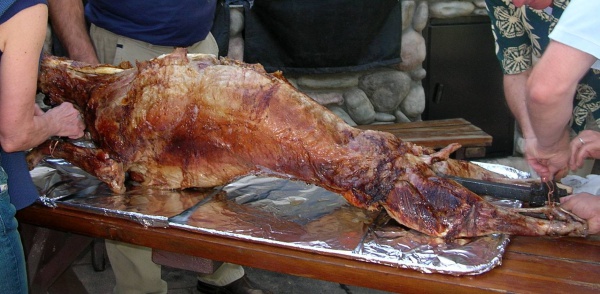Facts About Méchoui
In Northern African cuisine, Méchoui is a cherished traditional dish where a whole sheep or lamb is spit-roasted over a barbecue. The term "Méchoui" originates from the Arabic word "šawa" meaning grilled or roasted. This delectable dish is particularly popular in Algeria, Morocco, and Tunisia. In Algeria and Morocco, Méchoui specifically refers to the method of roasting an entire lamb or sheep on a spit, while in Tunisia, it can apply to any meat or fish grilled over embers.
Méchoui is typically served as the first course of a meal, often at large feasts or gatherings known as "diffa." It is a hands-on experience where the host uses their right hand to offer pieces of grilled meat to guests. Traditionally, no cutlery is used because the slow-cooked meat is so tender it can be easily pulled apart. Nomadic populations raise male lambs specifically for Méchoui, feeding them a special wild herb called "cheih" which imparts a unique flavor to the meat.
Preparing Méchoui is an art. It begins with slaughtering and preparing the lamb, removing the internal organs except for the kidneys. The cavity is then stitched up after being seasoned with spices such as ras el hanout. The lamb is skewered on a branch and slow-roasted beside the embers. During cooking, melted butter or oil is brushed onto the meat to crisp the exterior. Cooking times vary based on the weight of the animal, typically requiring about 15 minutes per kilogram.
There are regional variations to Méchoui. For instance, in Morocco, it may be cooked in a vertical hole or an earthen oven. The lamb is enclosed with a lid and roasted for several hours, resulting in extraordinarily tender meat. Traditionally, the dish is served with cumin and salt, allowing diners to season the meat to their preference before savoring it.
Méchoui is more than just a dish; it is a flavorful and communal culinary experience that showcases the rich traditions of Northern Africa, especially in Algeria, Morocco, and Tunisia.

 Libya
Libya